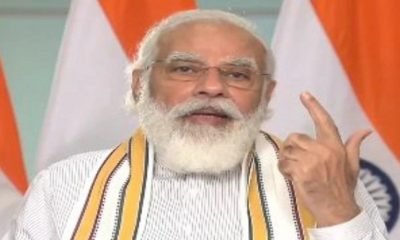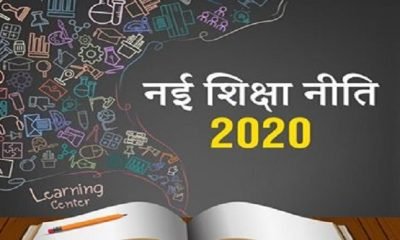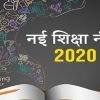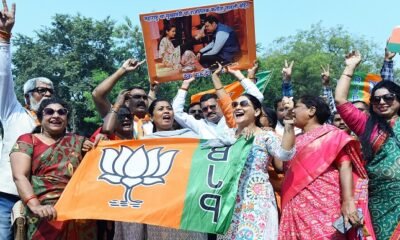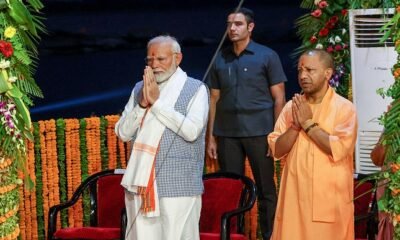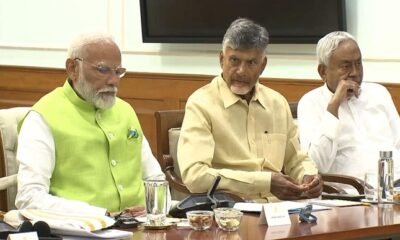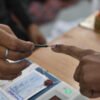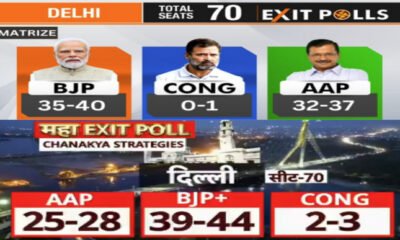National
New Education Policy 2020: Will it change the Indian Education System forever?
shradhha Verma.
In a bit to bring a transformational change in the existing Education system the centre on 29 July 2020 came up with a new National Education Policy- NEP 2020 , that is set to provide the upcoming generation with a lot of opportunities, instead of being a mere “burden” on them.
Children in this country often suffer because of the existing education system mostly promotes “rote learning” , and heavy school. Moreover, it is also marred by corruption, resulting in less learning outcomes , low Gross Enrollment Ratio (GER) , poor infrastructure, irresponsible behaviour of teachers etc .
According to Sustainable Development Report 2019-2020 , despite improvement in maternal mortality rate and infant mortality rate , despite efforts of Samagra Shiksha Abhiyaan, Sarva Shiksha Abhiyaan , Rashtriya Madhyamik Shiksha Abhiyaan and Teachers Education (TE) , that aims to provide quality education, eliminate gender disparity and vacational learning, several targets are still needed to be accomplished, such as –
Early Childhood Care and Education (ECCE)
Improvement in GER
Improvement in Gender Parity Index
Skill Development and Vocational Training
Improvement in Learning Outcomes of a child
Improvement in Basic Numeracy Skills in Primary schools
Better Asessment and Holistic approach of assessment of child
Improvement in Research field
So to achieve its Sustainable Development Goals Targets by 2030 and to secure the future of the child , The Union Ministry of Education ( earst while Ministry of Human Resource Development) announced a new NATIONAL EDUCATION POLICY 2020 . Its main highlights are-
1. New 5+3+3+4 school curriculum with 12 years of schooling and 3 years of Anganwadi/ Pre-schooling
2. Emphasis on Foundational Literacy and Numeracy, no rigid separation between academic streams,
extracurricular, vocational streams in schools ; Vocational Education to start from Class 6 with Internships.
3. Teaching upto at least Grade 5 to be in mother tongue/ regional language
4. Assessment reforms with 360 degree Holistic Progress Card, tracking Student Progress for achieving Learning Outcomes.
5. Higher Education curriculum to have Flexibility of Subjects.
6. Multiple Entry / Exit to be allowed with appropriate certification.
7. National Research Foundation to be established to foster a strong research culture.
8. Affiliation System to be phased out in 15 years with graded autonomy to colleges.
9. NEP 2020 advocates increased use of technology with equity; National Educational Technology Forum to be created.
10. NEP 2020 emphasizes setting up of Gender Inclusion Fund, Special Education Zones for disadvantaged regions and groups.
11. New Policy promotes Multilingualism in both schools and HEs; National Institute for Pali, Persian and Prakrit , Indian Institute of Translation and Interpretation to be set up.
NEP 2020 aims for Universalisation of education by developing an Early Childhood Care and Education Curriculum , innovative centres of learning to bring back the drip outs into the mainstream, using formal and non formal mode of education, providing Open School Learning to classes 3, 5 , 8 by NIOS and State Open Schools and organising life enriching programmes.
It also aims to use didgital technology in tesching, learning , assessment and in other aspects. NEP 2020 brought changes in learning and teaching structure- earlier 10+2 format was followed but under this policy new 5+3+3+4 system is brought . In this-
1) Pre-Primary / Foundational – 3 years of Anganwadi / Pre schooling {AGE – 3-4}
Level +
2 years of primary schooling (Classes 1 and 2) {AGE – 5-8}
2) Preparatory Level – 3 years ( Classes 3 to 5) {AGE -8-11}
3) Middle Level – 3 years ( Classes 6 to 8 ) {AGE -11-14}
4) Secondary Level – 4 years ( Classes 9 – 12 ) {AGE – 14-18}
The exploration of subjects with multidisciplinary approach will be included in the curriculam for students of class 6 to 8 and the students in secondary level will be given opportunity to choose any subjects . The student can opt for physics along with arts or anything else according to their area of interest .
The pedagogigal changes also aim to start vocational training from Class 6 onwards by introducing “10 days of baggless learning” in which students will be able to do internships under vocational trainers for 10 days for example gardening, laundry work, carpentering, painting etc. Also from class 6 onwards, students will be taught coding to enhance their computational and mathematical skills . In this way students will be enriched with 21st century based skill-sets also. The NATIONAL CURRICULAR FRAMEWORK FOR SCHOOL EDUCATION 2020-2021 will be made by the NCERT.
There will be no rigid separation between academic, co-curricular activities, extra-curricular activities, non-academic activities and vocational and academic streams (Arts and Science).
For Girl Child Development , Gender Inclusion Fund will be there and KGBVS (Kasturba Gandhi Balika Vikas Vidyalaya) , which is only limited to class 8 and in most areas upto class 10 , will now be upgraded to class 12.
Curriculum will be reduced to essential concepts and core subjects so that child can get enough time to imbibe life skills, scientific temper , analytical skills , soft skills and other important skills that is very essential for the mental and personality development. Board examinations will be to check “Basic knowledge” not the “Rote Learning” of the child.
360 Degree Holistic Progress Card will have to be developed by the teachers. In present time , card consists of only the marks obtained in all subjects and some remarks on behaviour in the class, that’s nothing more than a mere formality. However, under the new policy there will be separate column exhibiting the evaluation done by the student , classmate and teachers ; also the necessary skill which the student lacks will have to be mentioned. These lacunae will be discussed by teachers with their parents every year.
Learning outcomes of the students will be tracked so that their basic literacy and numeracy skills can be assessed properly.
The NATIONAL ASSESSMENT CENTER – “PARAKH” (Performance Assessment Review and Analysis of Knowledge for Holistic Development) will be developed to give guidance and norms to all recognised state boards so as to achieve the specified benchmarks in different aspects.
National Testing Agency (NTA) will offer Common Entrance Exam to all colleges and Universities.
” Reading” will be promoted through Book Promotion Policy and Digital Library.
National Education Policy 2020 will prove to be a significant medium to introduce major changes for schools , children , teachers and parents that aim for some fundamental goals like –
100% GER by 2030
Universalisation from ECCE to Secondary Education by 2030
Attaining Foundational learning and Numeracy Skills by 2025
Bring back 2 crore Out of School children.
Inclusive and Equitable Education System by 2030.
Board exams to test basic learning and their application of practical knowledge.
Every child will come out of the school with at least one skill learned.
Common Standards of Learning in Public and Private schools.
Elimination of Regional Disparities existing in the field of education
Proper Assessment , evaluation including self evaluation of child
Strengthening important roles of parents in school life of a child.
Speacial focus on the girl child also will promote Gender inclusion and will lower gender parity
The government has come up with this innovatiove plan of empowering the present education system and aims to eradicate major loopholes that exists in the present system and this will be achieved only when the sincere implementation of the policy will be ensured.
“Education is the manifestation of the perfection already in man.”————————————– Swami Vivekanand



